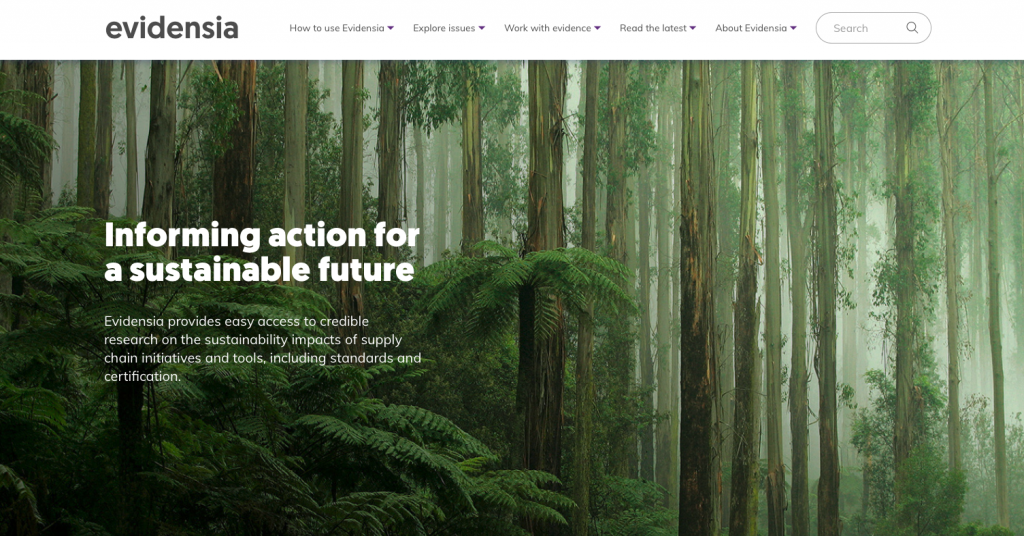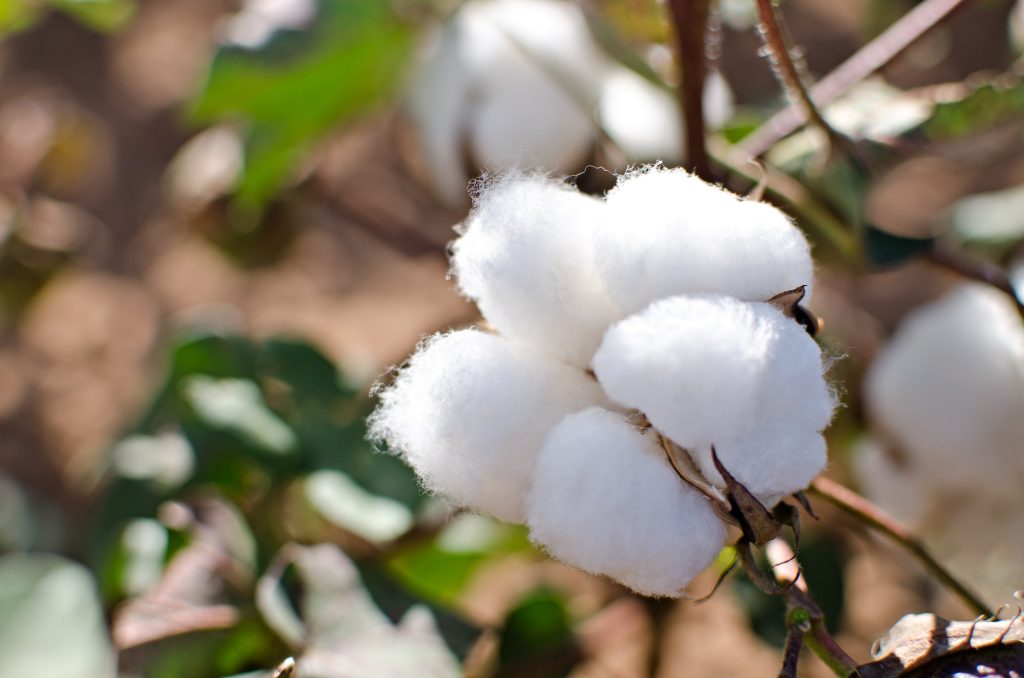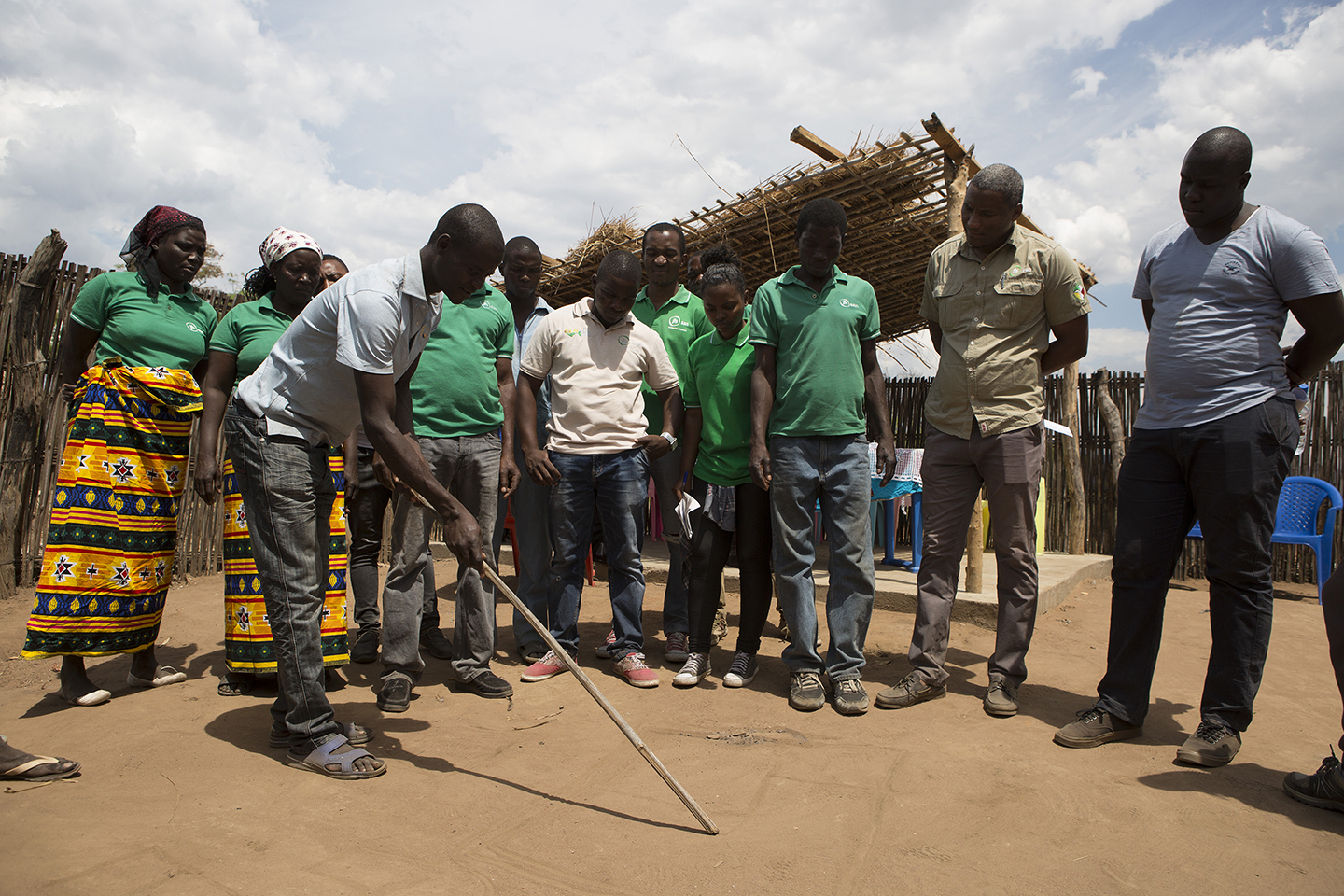On the Front Line of Climate Change with Better Cotton Farmers in Madagascar
On the Front Line of Climate Change with BCI Farmers in Madagascar
Read moreOn the Front Line of Climate Change with BCI Farmers in Madagascar
Read moreThrough Collaboration and Working in Harmony With the Environment
Read moreWe invite you to explore BCI’s first decade through an interactive timeline which celebrates the milestones that enabled BCI to evolve into the largest cotton sustainability programme in the world.
Read moreDiscover the outcomes Better Cotton Farmers experienced in the 2018-2019 cotton season by participating in the Better Cotton programme.
Read moreOver 300 representatives from across the cotton supply chain – from farmers to retailers and brands – met in Shanghai on 12 and 13 June for the 2019 Global Cotton Sustainability Conference.
Read moreAs BCI celebrates its tenth anniversary this year, we caught up with Michael Kobori, Vice President of Sustainability at Levi Strauss & Co., to discuss the fashion industry’s shifting attitude toward cotton production and sustainability.
Read more
ISEAL, WWF and Rainforest Alliance have developed a new website, Evidensia, which brings together credible research into the effects and impact of sustainability initiatives to enable more informed decisions.
Credible evidence underpins decision-making and supports businesses and governments in addressing pressing sustainability challenges at scale.Currently, much of the available information on the impacts of sustainability tools is not presented in an easy to understand format that is useful for decision-oriented analysis. This makes it difficult for decision-makers to easily identify and understand what information already exists about the impacts, effectiveness and business value of sustainability initiatives.
To address this challenge, ISEAL, WWF and Rainforest Alliance have developed a new website, Evidensia, which brings together credible research into the effects and impact of sustainability initiatives to enable more informed decisions.
Evidensia is designed to meet the needs of business leaders, policy makers and researchers. It hosts evidence and information on a range of sustainability supply chain tools and approaches, including standards, company sourcing codes and jurisdictional approaches.
The content on the site covers a whole range of sustainability issues, from climate change and deforestation to biodiversity and water conservation. The content is represented in a variety of formats including independent scientific studies, evaluation reports and case studies. It is also easily accessible and usable through a range of searching, filtering and mapping tools.
Having a site that collates this evidence and information makes it possible to clearly identify research gaps and priorities for researchers and funders. This minimises the duplication or misalignment of research efforts.
Through these efforts, Evidensia can help companies and others identify and implement effective mechanisms for sustainable production and sourcing, and will help improve the effectiveness of sustainability tools and approaches.


One Woman’s Journey to Improve the Lives of Rural Women
Read more
The Better Cotton Initiative’s (BCI) Retailer and Brand Members are forging the way for more sustainable cotton production by integrating Better Cotton into their raw material sourcing strategies and driving demand for more sustainable practices worldwide.
In 2018, 92 BCI Retailer and Brand Members sourced more than one million metric tonnes of Better Cotton – a record for BCI! This represents 4% of global cotton consumption*. BCI’s demand-driven funding model means that retailer and brand sourcing of Better Cotton directly translates into increased investment in training for cotton farmers on more sustainable practices.
While all BCI Retailer and Brand Members are contributing to the sustainable future of cotton, we would like to take this opportunity to highlight some of the leaders. The following members are the top 15 (in descending order) based on their total Better Cotton sourcing volumes in the 2018 calendar year. Together they represent a significant proportion (88%) of the Better Cotton that was sourced last year.
1 – Hennes & Mauritz AB
2 – IKEA Supply AG
3 – Gap Inc.
4 – adidas AG
5 – Nike, Inc.
6 – Levi Strauss & Co.
7 – C&A AG
8 – PVH Corp.
9 – VF Corporation
10 – BESTSELLER
11 – DECATHLON S.A.
12 – Target Corporation
13 – Marks and Spencer PLC
14 – Tesco
15 – OVS Spa
Access the Better Cotton Leaderboard 2018.
”Since September 2015, all of the cotton we source for IKEA products is responsibly sourced – 85% of that is sourced as Better Cotton.It took a decade of determination and hard work to embed sustainability into our supply chain and we are pleased to have reached our 100% sustainable cotton target. We won’t stop there though. We are committed to creating positive change throughout the entire cotton industry and continue to collaborate with our partnersto make this a reality,” says Rahul Ganju, Sustainability Manager Textiles, IKEA of Sweden.
“Cotton is our main raw material and it’s a natural choice for our consumers. However, we know that being natural doesn’t necessarily mean being sustainable. That’s why, in 2016, we decided to source only more sustainable cotton by 2020. BCI represents a core pillar in our strategy to reach that goal as the initiative increases cotton farmers’ capabilities to adopt sustainable agricultural practices and focus on continuous improvement,” says Simone Colombo, Head of Corporate Sustainability, OVS Spa.
“BESTSELLER joined BCI in 2011 and we’ve been an active member since then. We’ve increased our uptake of Better Cotton year on year and invested in farmer training and support. BESTSELLER has a target to source 100% of its cotton more sustainably by 2022 – to achieve this we source Better Cotton, Cotton made in Africa, organic cotton and recycled cotton,” says Dorte Rye Olsen, Sustainability Manager, BESTSELLER.
In addition to considering the absolute volumes of Better Cotton sourced, the proportional amount of Better Cotton as a percentage of total cotton consumption is important to highlight. For some Retailer and Brand Members, Better Cotton accounts for a substantial percentage of their total cotton sourcing. In 2018, the companies who sourced more than 90% of their cotton as Better Cotton were adidas AG, HEMA BV and Stadium AB. Decathlon SA, Fatface Ltd, Hennes & Mauritz AB, and IKEA AG sourced more than 75% of their cotton as Better Cotton.
The “fastest movers’ of 2018 (listed in alphabetical order) are Benetton, Burberry Ltd, Fatface Ltd, GANT AB, Gap Inc., HEMA BV, La Redoute, Nike Inc., Olymp Bezner KG, Peak Performance, PVH Corp. and Stadium AB. These retailers and brands increased their volumes of cotton sourced as Better Cotton by more than 20 percentage points compared to 2017, demonstrating that sourcing cotton more sustainably can become the norm for organisations of all sizes.
BCI has a goal to reach and train fivemillion cotton farmers by 2020.In order to achieve this, BCI calls upon its current Retailer and Brand Members as well as new members to be as ambitious as possible in setting Better Cotton sourcing targets. Increased sourcing generates essential funding for farmer training and support. We’re pleased to note that of BCI’s current 125 Retailer and Brand Members, 27 already have a public target to source 100% of their cotton more sustainably by 2020. An additional 23 members have sustainable sourcing targets that are set for just beyond 2020.
We’re now looking for the next wave of sustainability leaders to join BCI and close the gap between the supply of Better Cotton on the market (19% of global cotton production in the 2017-18 cotton season) and demand from Retailer and Brand Members (4% of global cotton consumption in the 2017-18 cotton season*). In the 2019-20 cotton season, Better Cotton is forecast to account for 30% of global cotton production.
Access the Better Cotton Leaderboard 2018.
As demand for Better Cotton increases, more and more organisations throughout the cotton supply chain are joining BCI and supporting increased uptake of Better Cotton. In the coming weeks, we will launch cotton merchant and cotton mill leaderboards, highlighting who sourced the largest volumes of cotton as Better Cotton in 2018.


*Global cotton consumption figures as reported by ICAC. More information is availablehere.
Read more
We are pleased to welcome the High Conservation Value (HCV) Network as our newest BCI Member. Earlier this month, we entered into a reciprocal agreement, meaning that the Better Cotton Initiative (BCI) is also a member of the HCV Network.
During the revision of BCI’s Better Cotton Principles and Criteria (2015 – 2017), BCI and HCV Network worked collectively to develop innovative yet simple approaches to introduce theHigh Conservation ValueApproach and effectivebiodiversity management tools, specially designed with smallholder farmers in mind, into the Better Cotton Standard.
”The agreement and reciprocal membership follow a number of years of collaboration, during which HCV Network contributed to the revision of the Better Cotton Principles and Criteria. Last year, we joined BCI to kick-start training on biodiversity management tools with BCI Farmers in Mozambique and India. We look forward to continuing to support BCI,” says OliviaScholtz, Senior Project Manager at HCV Network.
BCI is working to ensure that farms of all sizes undertake a simplified HCV assessment (a field assessment involving the collection of field data, stakeholder consultations and analysis of existing information), prior to converting any land, such as forests, for cotton production.
”In the coming years, we will continue to work together to ensure biodiversity management tools are implemented effectively, especially where support is required to adapt the tools to national contexts. We are very happy to be strengthening our partnership with HCV Network to drive biodiversity conservation,” says Gregory Jean, Standard and Learning Manager at BCI.
Find out how BCI Farmers are protecting and enhancing biodiversity in cotton farming.
About HCV Network
The HCV Network is a member-based organisation that strives to protect High Conservation Values in areas where the expansion of forestry and agriculture may put important forests, biodiversity and local communities at risk. The HCV Network is formed by organisations that use and promote the HCV Approach.


© BCI | Water Stewardship and Land Use Training, Mozambique.
Read moreIDH, the Sustainable Trade Initiative has been instrumental in BCI’s growth, providing the initial funding that enabled the scale-up of BCI programmes in different parts of the world, delivering fund management and driving innovation
Read more
We are delighted to announce that Marc Lewkowitzhasbeen elected as the new Chairperson of the Better Cotton Initiative (BCI) Council.
Marc Lewkowitz is President and CEO of Supima, the promotional and marketing organisation for American Pima cotton growers. He began his career in 1990, when he entered into the cotton industry through a family-owned gin in Paraguay and has worked as a trader and manager for firms including ContiCotton, Merrill Lynch, Itochu Cotton and Anderson Clayton/Queensland Cotton. Lewkowitz has also served as a member of the BCI Council since June 2016 and as an advisor to the Board of Cotton Council International since February 2013.
”I am honoured to have been elected to serve as Chair of the BCI Council. It is an exciting time as BCI celebrates its 10th anniversary this year along with some incredible milestones. We are also looking ahead to the next decade and developing BCI’s 2030 strategy. I look forward to working collaboratively with BCI Members and Partners to ensure BCI continues to drive sustainability in cotton production,” said Marc Lewkowitz, BCI Council Chair.
Marc succeeds Barry Clarke, an independent member and Chairperson since 2017. On stepping down from his position, Barry commented;
“It has been a great privilege to serve on the BCI Council for the past six years and to see the successful outcome of the plans we laid together for the future of sustainable cotton. We have made an encouraging start but have so much more to do. All sustainability initiatives face complex challenges but BCI is set for success with collaborative members and outstanding leadership. It will thrive under its experienced executive team, strong Council and highly qualified new Chair.”
TheBCI Councilis elected by BCI Members and is responsible for ensuring the organisation has a clear strategic direction and policy to fulfil its mission ofmaking global cotton production better for the people who produce it, better for the environment it grows in, and better for the sector’s future. Council Memberscome from organisations representing four of BCI’s membership categories (retailers and brands, suppliers and manufacturers, civil society and producer organisations), supplemented by up to three additionalindependent members.
We’d like to take this opportunity to thank Barry for his contribution to BCI over the past few years and to welcome Marc Lewkowitz into his new role.
Find out more about the BCI Council.

